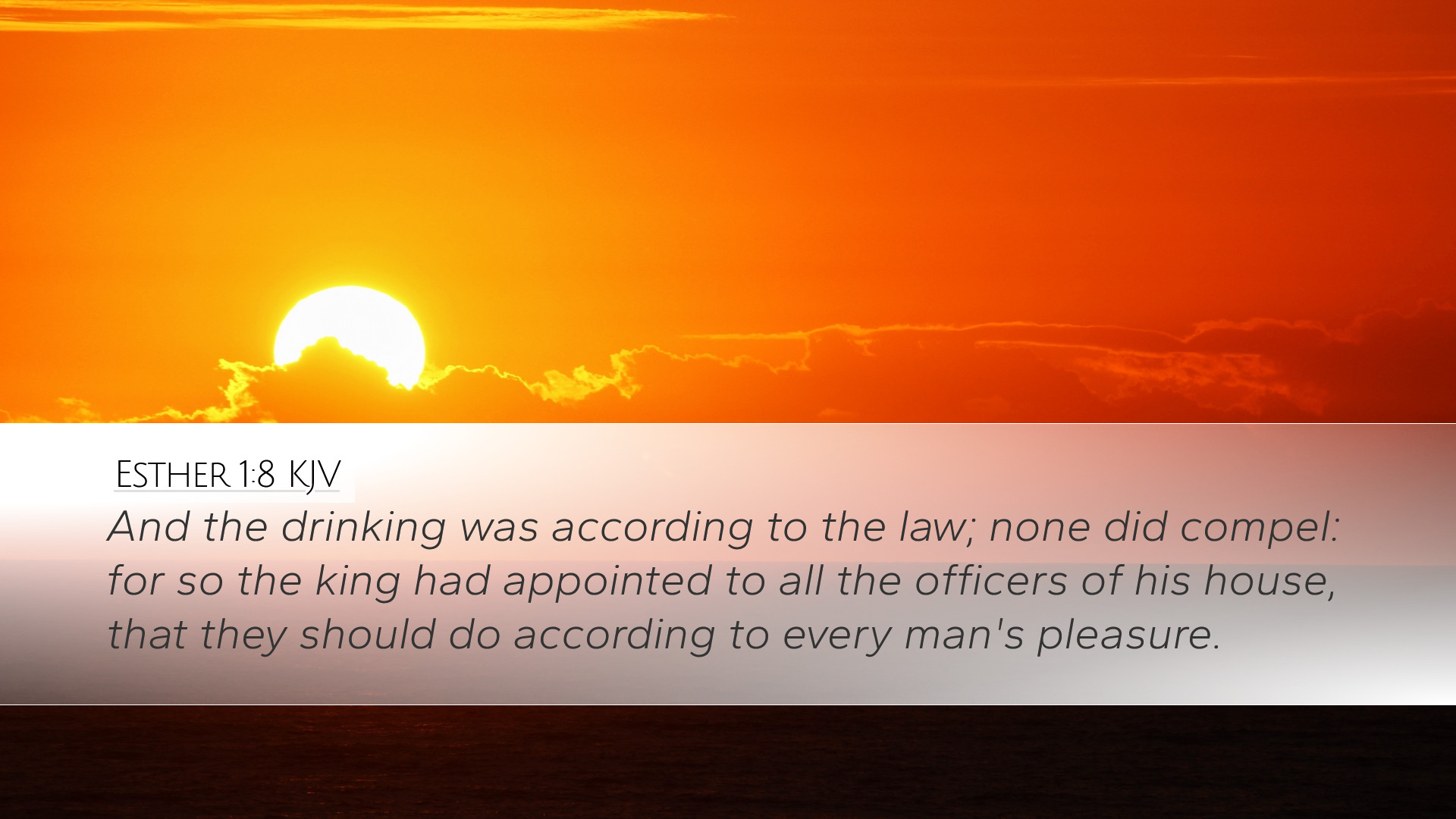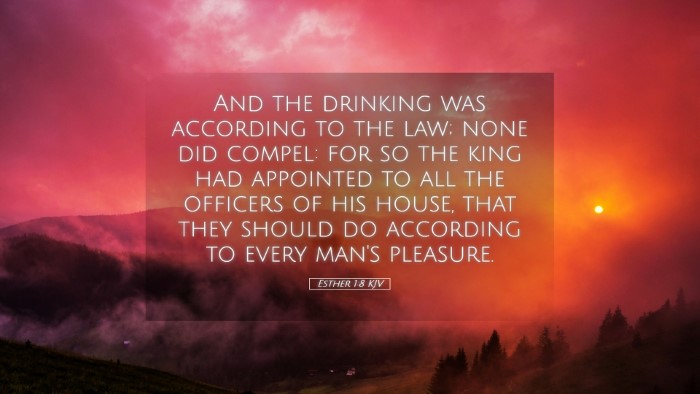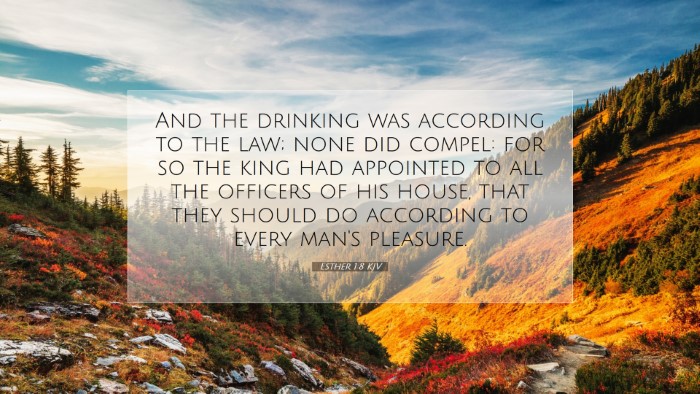Old Testament
Genesis Exodus Leviticus Numbers Deuteronomy Joshua Judges Ruth 1 Samuel 2 Samuel 1 Kings 2 Kings 1 Chronicles 2 Chronicles Ezra Nehemiah Esther Job Psalms Proverbs Ecclesiastes Song of Solomon Isaiah Jeremiah Lamentations Ezekiel Daniel Hosea Joel Amos Obadiah Jonah Micah Nahum Habakkuk Zephaniah Haggai Zechariah MalachiEsther 1:8
Esther 1:8 KJV
And the drinking was according to the law; none did compel: for so the king had appointed to all the officers of his house, that they should do according to every man's pleasure.
Esther 1:8 Bible Commentary
Commentary on Esther 1:8
Esther 1:8: "And the drinking was according to the law; none did compel: for so the king had appointed to all the officers of his house, that they should do according to every man’s pleasure."
Context and Background
The book of Esther presents a narrative set during the Persian Empire, primarily focusing on the lives of its Jewish characters. This particular verse comes from a scene of immense opulence and indulgence, where King Ahasuerus (Xerxes) hosts a grand feast.
Exegesis of Esther 1:8
In this verse, the freedom granted to the guests at the feast reflects the law of the land and the king's personal preferences. The phrase "none did compel" indicates a voluntary aspect, which speaks to the culture of the time regarding hospitality and feasting.
Theological Reflections
The absence of compulsion in drinking signifies a deeper theological concept: the nature of liberty in human choices. God, in His sovereignty, allows humanity the freedom to make choices, thus reflecting His character while respecting human agency.
Insights from Commentaries
-
Matthew Henry:
Henry emphasizes the importance of moderation and self-control, even amidst excess. He draws a parallel between the king's decree and Christian liberty, urging believers to act according to their conscience rather than compulsion.
-
Albert Barnes:
Barnes highlights the political implications of this law, suggesting that the king's intent was to avoid discord among his guests. He interprets the freedom allowed as a reflection of the king’s desire for loyalty rather than forceful obedience.
-
Adam Clarke:
Clarke delves into historical customs of feasting and drinking, providing a cultural backdrop that underscores the opulence of the Persian court. He notes that the King's decree allows each man autonomy over his actions, presenting a dignified approach to social gatherings.
Practical Applications
For pastors and scholars, the verse serves as a reminder of the importance of autonomy within the church. It challenges leaders to foster environments where choice exists and compulsion does not, reflecting Christ's approach to engagement with humanity.
-
Pastoral Leadership:
Leaders should focus on creating spaces that allow congregants to express their faith freely and voluntarily.
-
Christian Freedom:
Believers are called to a life of liberty in Christ; hence the significance of choosing to follow Him should resonate in their actions and decisions.
Conclusion
Esther 1:8 encapsulates a moment that holds both cultural richness and spiritual significance. The freedom exemplified at the king's banquet serves as an illustration for the relational dynamics within divine grace and human choice. In the fabric of the Christian faith, believers are invited to participate in a life characterized by grace, freedom, and personal volition.


